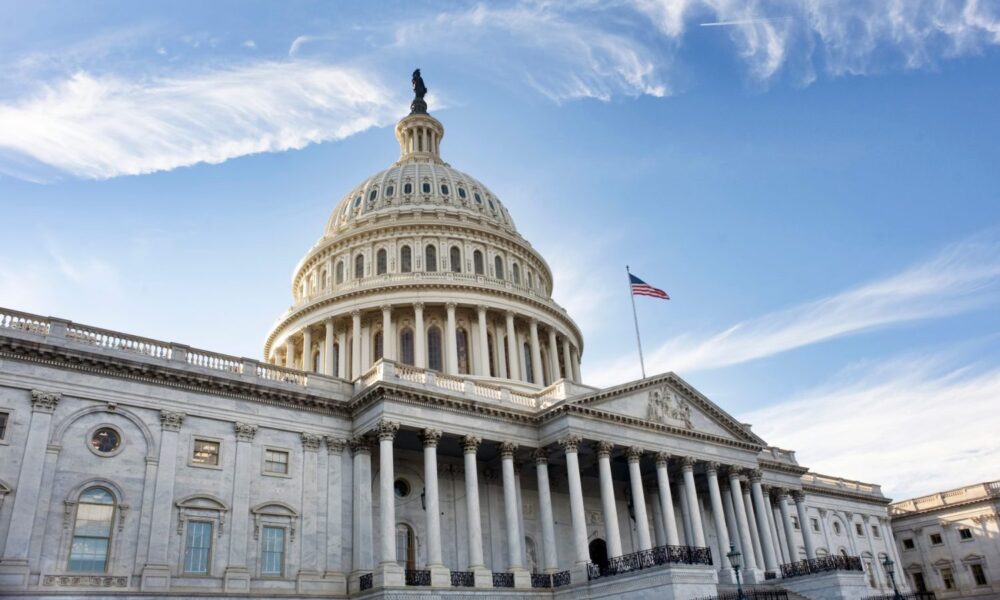The 119th Congress passed a gigantic tax and spending bill that was signed by the president on July 4. It was lovingly titled One Big Beautiful Bill Act (OBBBA) for a time, but that title did not survive the behind-closed-doors battles over details and quid-pro-quo compromises. The bill raised the national debt ceiling by $5 trillion. The Congressional Budget Office estimates the Act will increase the deficit by $2.8 trillion by 2034.
The bill’s original intent was to implement the policies Donald Trump promised during his presidential campaign. Thus, the one big bill: Lawmakers put everything but the kitchen sink into the bill, trusting the Republic Party’s majority in both houses to pass it. In that sense it worked, although it required Vice President J.D. Vance’s tie-breaking vote in the Senate for passage.
The bill covered two areas, revenue and expenses. When lawmakers cut taxes in one area, they need to find new revenues in another and/or cut expenses. The bill added both new expenses and taxes and cut other taxes and expenses. In theory, it is a perfect solution to funding the president’s agenda. The popularity of the OBBBA will get tested in the 2026 elections.
The Act as passed contains several sections that are relevant to the gaming industry. The threshold for tax reporting on a slot machine jackpot was raised from $1,200 to $2,000. Tip earners, which include casino dealers, bartenders, cocktail waitresses, valet car parkers, bellmen, and restaurant employees, can deduct up to $25,000 in cash-tip earnings. All workers can deduct up to $12,500 in overtime earnings.
John DeCree of CBRE, a global real estate and investment firm, sees the tip and overtime benefits as a major win for casinos. In particular, DeCree says those changes will result in an average of a $1,000 increase in disposable income per tip employee in Sin City. Therefore, the city will have an additional $230 million of free cash floating around. At least some of that cash will find its way into local casinos. DeCree also thinks that nationally, the combination of tip and overtime revenue and reduced tax on Social Security will benefit casinos; the impact will not be as significant as in Las Vegas, but it still should have an impact on gaming revenues.
And then there was the sneaker, the one that seemingly got by everyone but the lawmakers who drafted the provision. Gamblers can no longer deduct 100 percent of their losses. The limit is now 90 percent. The analysts say the ten percent will make it impossible for professional gamblers, like poker players and sports bettors, to make a living. Gamblers will now have to pay tax on the phantom income from the 10 percent no longer deductible. It is being said that the provision will have long-term and negative effects on gaming revenue.
Every section of the OBBBA has its critics and supporters. The new reporting threshold of $2,000 is much less than the $5,000 gaming state lawmakers were seeking. According to those legislators, the threshold is out of date. It does not take into account inflation or the change in slot technology. The low threshold for reporting imposes a heavy bureaucratic burden and is years out of sync. The support seeking higher thresholds will most certainly be back, lobbying for a much higher threshold; $10,000 is not outlandish and more in keeping with modern slot technology and payback schedules.
On the other hand, the tips, overtime, and Social Security tax cuts have found few critics. In time, that provision may find its opponents, but it is not likely to be a very loud or powerful lobby.
The new loss deduction limit of 90 percent is a special case. Immediately after the president signed the Act, gaming-state lawmakers started to attempt to overturn it. The first, a bill introduced by Catherine Cortez Masto, a Democrat senator from Nevada, was defeated procedurally. Cortez Masto is not alone; senators and representatives from states with casinos, sports betting, and igaming can be considered potential supporters.
The provision is interesting on another level. It illustrates the challenges of most major legislation. The One Big Beautiful Bill Act was 940-something pages long and contained a half-million words. It took 16 hours to read in the Senate when the leader of the Democrat Party insisted.
It was the congressional version of reading War and Peace. And like reading War and Peace, not everyone paid attention to those 500,000 words or understood their portent. It is a daunting task. When characterizing the lack of knowledge of the loss-deduction segment, Cortez Masto said, “My understanding is many Republicans, many Democrats did not even know it was part of that process.” Even Nevada’s Republican representative was not aware of the clause. He immediately joined Cortez Masto in seeking its overturn.
Analyzing the bill in detail is above my skill level and pay grade and, I would argue, above the skill level of most of the people who voted for or against the bill. There are too many issues, like War and Peace with its more than 500 characters. It is impossible to grasp each character, event, and plotline in one reading of War and Peace, or indeed in a dozen readings. No one in Congress read the bill dozens of times, studying each of its separate plotlines. Congress was under a deadline imposed by the president. The lawmakers were very busy with the process, not studying the bill. They debated, argued, promised, compromised, and made changes right up to the end. One senator spent those hours following Lisa Murkowski around, constantly talking, pleading, and making offers to get her to change her vote.
Nine hundred pages and a half-million words are too many for that process. I have read War and Peace a few times over a period of 50 years. My understanding of the story, the characters, and plotlines is better than the first time, but not enough to vote on the worthiness of every line. That is an impossible task. It is impossible for readers of War and Peace, but more importantly it is an impossible task for members of Congress.


